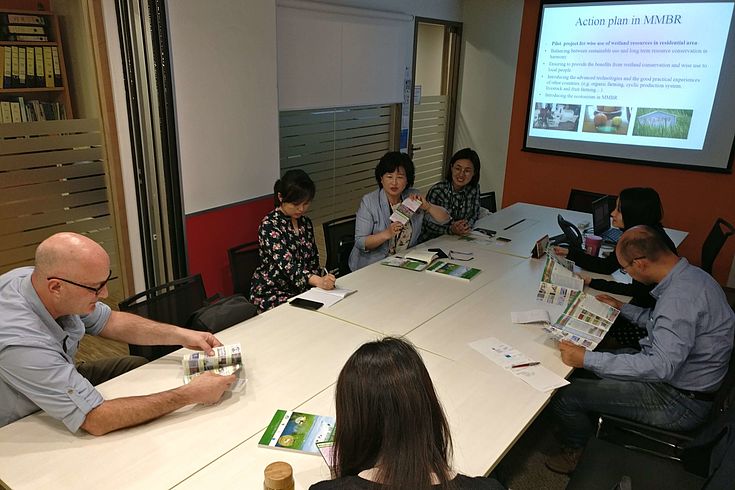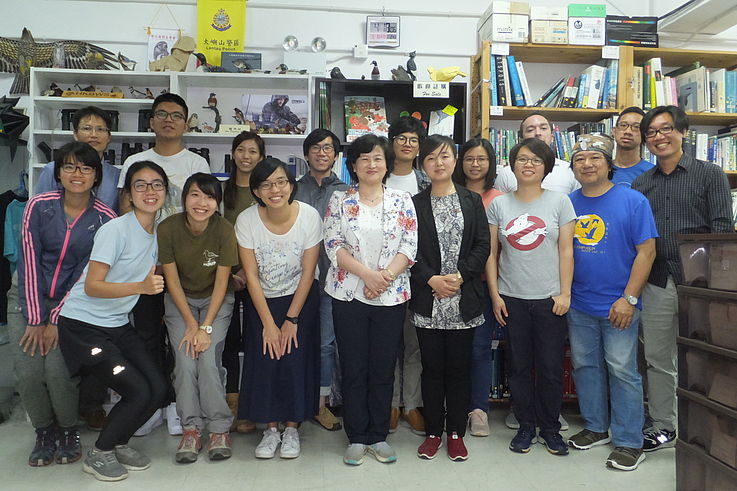Workshop
Sustainable Seafood and Nature Conservation – Introducing Certification Schemes

Certainly, many consumers have seen the blue logos on products in supermarkets, some even search for it when consuming seafood. WWF Hong Kong is promoting sustainable seafood. In South Korea, Wando County is the largest producer of seafood: the county produces more than 9 per cent of all the seafood harvested and 80 per cent of abalone nationally. There, 14 aquaculture farms achieved ASC certification in 2018 alone. Given the large economic value of fisheries and its impact on the environment, it becomes also significant for nature conservation, wetlands, and biodiversity. HSF Korea supported the visit of a delegation from North Korea to discuss with Chinese and South Korean experts about sustainable and certified seafood and to learn from WWF Hong Kong why the topic is so important.
The delegation from North Korea attended a workshop on ASC and MSC standards and presented on efforts to conserve Marine Protected Areas in the country. Additional parts of the program included discussions with WWF Hong Kong. At the wetland center in Hong Kong, the delegation was introduced to modern approaches to conserve wetlands and to understand the relationship between economic developments and environment conservation. During a meeting with Oxfam, the North Korean delegation gave a presentation about Mundok Migratory Bird Reserve. The area was designated the first Ramsar Site of International Importance in the country (along Rason Migratory Bird Reserve) and is now promoted as a Model Site for the Wise Use of Wetlands in the country. Multiple international organizations work in different areas to promote functioning ecosystems.
A meeting with Hong Kong Bird Watching Society focused on detailed discussions on how to conserve biodiversity in North Korea while increasing cooperation with partners in North Korea. HKBWS has also been part of a delegation visiting North Korea and Mundok Migratory Bird Reserve in March 2019. Finally, HOFEX, Asia’s Leading Food & Hospitality Tradeshow was visited. There, Wando County had a booth and promoted sustainable seafood. Environment awareness must be strengthened to make consumers aware and prefer sustainable seafood, so that producers are urged to contribute to conserve the environment. For North Korea, the topic is of special interest. Under the sanctions regime, no seafood can be exported. If there were exemptions for certified sustainable seafood, it could be a way to contribute to economic benefits, while having producers and beneficiaries monitored and controlled.

